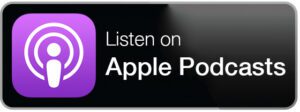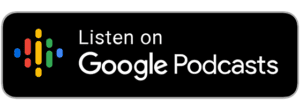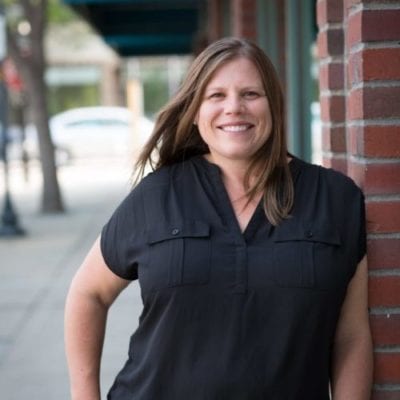Dimensions of Coaching and the Lean Coaching Summit with Jim Huntzinger of Lean Frontiers | Bonus Episode May 2021
Welcome to Lean Leadership for Ops Managers, the podcast for leaders in Ops Management who want to spark improvement, foster engagement, and boost problem solving – AND still get their day job done. Here’s your host, Leadership Trainer, Lean Enthusiast, and Spy Thriller Junkie, Jamie V. Parker.
Jamie V. Parker: [00:00:29] Coaching is such a critical skill and behavior for leaders, that’s why I’m thrilled to join the lineup for the 2021 Lean Frontier’s Lean Coaching Summit.
But coaching isn’t one dimensional. In fact, Jim Huntzinger, Founder and President of Lean Frontiers, joins us on today’s podcast and shares different perspectives, angles and applications of Lean coaching and how conversations with John Shook about these different dimensions led to the birth of the Lean Coaching Summit.
This year’s summit has a fantastic lineup of speakers. In fact, three of the folks joining me on the lineup have been guests on this podcast so you can head over to https://processplusresults.com/podcast/ to hear those episodes.
You can hear Mike Wroblewski in Episode 29 talk about leader standard work.
Dorsey Sherman joined in both Episodes 31 and Episode 32 to have a conversation with me about employee engagement.
Deondra Wardelle joined the podcast on Episode 35 and shared her perspective on fostering an inclusive environment.
You can hear all three of these guests, along with me and other fabulous speakers, teach on Lean coaching at the 2021 Lean Coaching Summit.
Get the links at the show notes for this episode https://processplusresults.com/podcast/ Or to learn about the summit, you can head directly to https://leanfrontiers.com/ and follow the prompts to summits.
Now let’s hear more from our guest.
Jim, welcome to the show or so glad to have you.
Jim Huntzinger: [00:02:25] Thank you. I’m thrilled to be here.
Jamie V. Parker: [00:02:27] Well, today we’re talking about the Lean Coaching Summit. So can we start off and have you tell us what is this thing?
Jim Huntzinger: [00:02:36] Yeah, I’m happy to. Maybe I could start off with telling you kind of how it came about, because in a way that kind of somewhat formulates about, you know what it’s what it is about.
It goes back quite a few years. John Shook of Lean Enterprise Institute and I had for a couple of years had conversations around things with coaching because things like TWI were certainly, you know, had been around for a few years. Kata was after Mike published that book in 2009, was coming up.
And so there’s the coaching cadre. There’s aspects of coaching around TWI. There’s also just a lots and lots of things in Lean around that.
And actually him and I actually literally had to add it like a napkin, kind of write up of notes of things around things in culture.
Back in 1999, Steven Spears’ article called Toyota’s DNA goes to an aspect of coaching and mentoring and just there’s a lot of things that were out there in the Lean world that had to do with coaching people, doing things around it, but nobody really kind of encapsulated it. So it was just kind of floating out there.
So maybe when I talked around that for a while and really talked about is there something we could do to try to encapsulate that, to help, you know, how important it is to being successful with with, you know, a Lean transformation and even, you know, Lean sustaining Lean.
Is there something we could do? And really, it was probably back in 2012 because that’s when the first one was. We just finally decided one time, well, why don’t we just jointly do a Lean Coaching Summit and let’s do what we’ve been jabbering to each other about for a couple of years.
So we launched the first Lean Coaching Summit in 2012 because we thought it was a worthy venture. And part of that, too, is from a coaching perspective, from a Toyota perspective or Lean perspective, it didn’t so much about, you know, please, you know, in a classroom type setting or traditional teaching, teach me how you do anything. And Lean in particular, let alone coaching, it’s more of instead of me telling you about it, let’s go out and work on something together.
And then that’s where that whole coaching aspect, mentoring aspect comes into play. It’s about doing things with real projects, real work and learning that process, asking the questions and working on it together.
And that’s where, like the humble inquiry, scientific method of questions and a lot of the questioning that’s actually embedded in TWI and Kata come about. So that’s that was the venture of it that we did that.
So we were trying to bring that all together and there’s a lot there, and I could go through some of that, what are you doing? All of it, but a lot there.
So we knew we had plenty of material and we knew there was a lot more work yet to be done. And bringing that stuff together would help people think through some of this shared and also develop what are further ideas or even further gaps in this arena that people and organizations need. So that’s kind of how it got going with that in mind.
Jamie V. Parker: [00:05:37] All right. So that’s how we got started. And now you have the 2021 Lean Coaching Summit coming up. So tell us a little bit about this year’s Summit.
Jim Huntzinger: [00:05:49] So this year, I guess I’m excited about in this sense. Several years ago after one of the coaching summits, we got a group of us together to try to digress on, OK, where are we? Where have we gone? Where are we at? Where are we gone? Where are we at? And where do we need to go to from it?
And in the course of that daylong meeting we had, I think there’s about 15 of us in the meeting to try to work on that. We kind of drive out of you know, there’s two aspects of coaching, I guess, in this case there’s kind of what we call end up calling it the heart and the mind.
So by the mind, you mean there’s certain good techniques and a variety of them that you need to know. You need to understand, you need to get some level of competency which was one part of it.
And there’s also some, you know, an aspect of the heart, you know, helping people develop, helping them grow, helping them to help other people to do all that. So that’s kind of this heart and mind.
So some of that came about where we have people that talk to things with about the mind that people talk to things about power. And there’s also a lot of that. There’s certainly a strong interconnection and intersection between those two as well. So a lot of people are talking about both.
So that’s continued to develop since we did that several years ago. And that’s one thing I know, this year in particular excited about, because we have a good variety of people that are talking about techniques, practices, thoughts, methodology, even gaps that are still out there, that kind of cover that. So how do we get to where you become effective at both those? Because it’s really good coaching is about both those aspects of it.
Jamie V. Parker: [00:07:33] Well, let me ask you, because I know there are a lot of conferences out there. There are a lot of workshops and events out there. What do you think sets the Lean Coaching Summit apart from some of the other potential events that people might go to?
Jim Huntzinger: [00:07:49] Yeah, I think I think particularly this because even some of our own other summits, there’s certainly aspects of coaching and people talk about that.
But it’s important. But I think it comes from with unique with this one is if you look at. What good coaching is there to get there?
I mean, it’s such a broad spectrum.
I mean, there’s, you know, coaching horizontally, you know, of your peers.
There’s coaching upward. You know, people that are above you.
There’s coaching subordinates or coaching down. I don’t mean down to people, but just people that are made at a lower level, you or just maybe in a particular area less experienced than you are. There’s coaching in that direction.
As I mentioned before, there’s coaching for technical reasons. To coach people to learn things technically or even your coaching technique, for that matter.
There’s coaching for relationship purposes, again, building people’s ability to do that, plus also just building those relationship aspects, which is important to,
I would say, a Lean enterprise, certainly. But really any enterprise and coaching to grow, someone coaching to teach people. Like I said at the beginning, I’m not going to tell you how to do this, but I’ll go work on a project with you as somebody who has experience so you can do it together so you can learn in that manner and just the questioning that goes involved with it.
Like I said, the scientific method questioning some of that, some of that, at least from a Lean coaching perspective derived out of TWI originally back decades and decades ago, but also learning how to listen for, you know, listening is an aspect of it, listening for understanding, listening for discernment, listening to be able to think things through more effectively and even for reflection and on and on.
And that’s just a few things, a few of the things.
So when you look all at all those aspects of coaching and there’s more, there’s always so much to learn. And that’s why, like I said, even to people that are veterans of it and presenters always go, wow, I learned I learned so much this year, even though I’ve been presenting at this thing for the last five years.
That’s that’s that’s what it is. So it’s unique in that standpoint of people learning these skills, because certainly coaching is a skill or essentially behavioral patterns in order to learn, grow, develop countermeasures, understand support, solve problems and on and on back back to the things John Shook and I were talking about years ago before we started.
There’s all these aspects and Lean where there’s also aspects of coaching involved with it to be more effective. So how can we help people get better at all that better that go out in practice, practice, practice and hopefully come back and share what they’ve learned?
Jamie V. Parker: [00:10:26] Yeah, well, I’m hearing you talk about all of these different aspects and perspectives and angles. It also sounds like this. There is a lot there for a lot of different types of folks and different types of roles, like it’s not necessarily, oh, I’m a coach, I need to come to this. Is that your perspective as well?
Jim Huntzinger: [00:10:48] Absolutely. And just different levels. I mean, whether you’re an engineer or a front line manager or a CFO, CEO, ideally, you all should have some level of coaching skills to be able to coach in all those different dynamics that we talked about to be able to do that.
Jamie V. Parker: [00:11:12] So the summit is the week of August 2nd, and you all are going virtual this year, so tell us a little bit about that.
Jim Huntzinger: [00:11:20] Yeah, we’re going virtual. So that’s, you know, something new for this summit. I guess we did something. I guess I think we did a virtual last year. But what we’ve learned over the last year along with everybody else is what we’ve learned is, I think, better ways to do it virtually.
So it’s more interactive. So that’s what people like a lot. They like interactivity.
They also like peer to peer learning and networking. So that’s another thing we’re excited about.
So as much as there is teaching that will go on from the practitioners and thought leaders with all that, there’s a ton of interaction, breakout sessions where people can interact, they can talk with each other, with the presenters and all that. So.
So we haven’t broken out, I think, in four days. So that’s you know, it’s not all day long because just sitting in front of your computer all day long, that’s something else we learned is can be a bit more of a grind. So we have it broken out into four different days.
So you have different presenters each day, different learning each day, the breakout sessions where you can go in and talk with your peers, with the presenters and also to the you have the ability to to move around so you could spend some time in one breakout session and then you’ll be able to move into another breakout session if you choose your own choosing.
The other thing is we have a range compared to a live summit with the likes of sometimes you have to make a choice. Do I want to listen to this person or that person or with the virtual one? You get to listen to all of them and still will be recorded. You could come back and listen to listen to him again as well. So that’s certainly an advantage of it is you get to hear everybody what they’re talking about. And you could come back and listen to other key points that you may want to listen to a little more closely at a later time. But they will be live when we broadcast it there in August.
Jamie V. Parker: [00:13:15] Yeah. And, you know, I think it’s just going to expand access. There’s so many people that are going to be able to attend. And I will tell you. So I did not attend any of your recent virtual events, but seeing some of the Lean Frontiers, virtual events over the last two months, people were raving about them.
My LinkedIn feed was just bombarded with how interactive and what all of the learnings were, and it just really felt like it was a different level than some of the things that I know I’ve been to. I mean, maybe I’d put on myself.
So for folks who want to learn more about the Lean Coaching Summit and register for that, where’s the best place for them to go?
Jim Huntzinger: [00:13:59] The best place you can go to is to our website, https://leanfrontiers.com/ . And if you go to our summit, if you go up there on a menu, you can go to summits and it’ll come up, or even if you want to go directly, you can go to https://leanfrontiers.com/2021virtualcoaching/ . And that’ll take you right to the virtual website we have for the virtual coaching summit and also to we’re also on LinkedIn, Facebook, Twitter and Instagram. So you could find us in those arenas as well.
Jamie V. Parker: [00:14:32] All right. So we’re going to make sure we put all of those direct links into our show notes so you can go to our show notes. Remember, those are https://processplusresults.com/podcast/ . You can go to get any of those direct links.
All right. So, Jim, I’m so glad that we’ve had this discussion, but I know that and I’m ready for this Lean Coaching Summit. I am ready to not just come in and share what I’ve learned, but also to learn from everyone else.
But I know that the Lean Coaching Summit is the only thing that Lean Frontiers does. So what are some of the other either events or areas that people can engage with you on?
Jim Huntzinger: [00:15:12] Yeah, the variety of things, like I said, are kind of our, I guess our mission or our purposes. We could say we build communities within the Lean community.
So these different things, which are usually around some type of subject matter topic, you know, like Lean accounting, coaching, of course, TWI, Kata, Lean management systems and so forth.
So we have other events around those specific subjects, subject matter.
And a couple of things we have coming up. Actually, we have one coming up that’s Lean health care. It’s actually Indiana specific that we have. So everybody presenting from it, except for one of our keynotes, are health care practitioners in Indiana. But it’s going virtual, too, which also allows for a broader crowd to attend and also to have coming up in June. That one’s in May. The health care one.
The one in June coming up is TWI and Kata Summit Europe. So we do that. We have one in North America. We have this one. We do in Europe, again, it’s going to be virtual. So we’re hoping to get a little more broader mixed crowd than just the Europeans to learn that as well.
So the other things that we do, we have what we call our Skill Point Workshop, which is a very immersive workshop that with we can do skill point for job instruction, which is TWI or skill point for Kata. So that’s a very immersive learning environment where you can go get really direct actual practice in that in a real, real environment as well.
So like I said, we have those things available. There’s more things on our website. There’s webinars available. There’s other content. There are other summits that we do. But if you go to our website, it kind of lists out all the variety of things where you can engage with us.
Jamie V. Parker: [00:16:58] So as we close out today, our listeners and we have a lot of listeners who are operations managers and executives and they’re Lean thinking folks, we also have some improvement practitioners who are trying to help and support those leaders. So what would you leave us as kind of parting words of wisdom or encouragement for our listeners here today?
Jim Huntzinger: [00:17:18] Be a continual learner, whether you’re engaging with us or whether you’re doing something else, but always be a learner and engage in a variety of ways of learning.
Learning from your peers, learning from reading, but also with all that being a Lean person, you should always eventually circle that back around and to learn by doing so, actually applying actually practicing actually running those experiments and and through the scientific method and plan do check act.
So if you continue to do that, you’ll be surprised. And that’s one of the reasons why reflection so important because a lot of times you get lost in the mix of doing all this stuff and you really need to stop and reflect and go, wow.
Actually, I realize now I’m actually in a different position, a lot more learning than I was a year ago or two years ago. So that’s part of why reflection is so important to realize you actually are making progress, because in a day to day grind, it often doesn’t feel like it.
Jamie V. Parker: [00:18:15] Yes, absolutely. Fantastic. Well, thank you, Jim, for being here and for sharing all of this great stuff about the summit today. All right.
Jim Huntzinger: [00:18:23] Well, thank you for having me, Jamie. I enjoyed it.
Jamie V. Parker: [00:18:29] The Lean Frontiers Lean Coaching summit is the place to explore the different dimensions of coaching. Head over to our podcast website
https://processplusresults.com/podcast/ and find this episode, this Bonus Episode for May 2021.
There you’re going to get all of the links Jim mentioned, plus the links to hear the other speakers guest podcast episodes where you can check out Mike Wroblewski, Dorsey Sherman, and Deondra Wardelle.
Until Next Time.
























